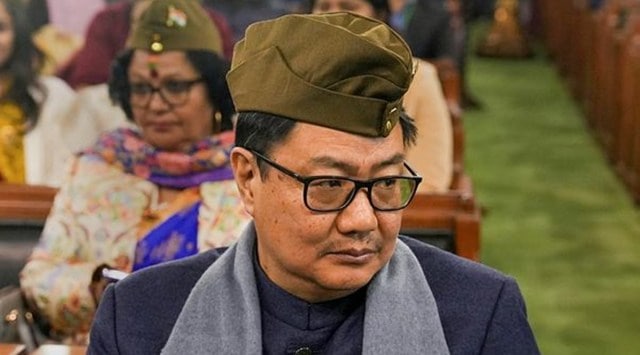
During his speech, Rijiju referred to a letter written by former CJI N V Ramana on criticism of judges on social media and said judges are careful while delivering verdicts that could draw a strong public reaction.
Story continues below this ad
However, he said, unlike politicians, a “judge does not have to face an election again”.
On Sunday, escalating the standoff over the appointment of judges to the higher judiciary, Rijiju had shared on Twitter an interview clip of former Delhi High Court Judge R S Sodhi saying that the “Supreme Court has, for the first time, hijacked the Constitution…it said we will appoint the judges and that the government will have no role in this”. The Law Minister tweeted that a “majority of the people have similar sane views”.
The tweets were posted days after the Supreme Court Collegium headed by the CJI made public its reasons for reiteration and the Government’s objections for the appointment of at least three advocates as High Court judges.
Speaking at the Tiz Hazari event Monday, Rijiju referred to the letter from ex-CJI Ramana and said, “Even judges are a bit careful these days. They won’t deliver judgments which could cause a strong reaction in the society. After all, a judge is also a human being and it (public opinion) affects him, too. There is a direct impact of (social media scrutiny) on judges.”
Story continues below this ad
The former CJI, he said, had sought a law to deal with criticism of judges on social media. Rijiju said you cannot do anything when a “vast number of people” have access to social media.
Then, comparing judges’ appointments to elections faced by politicians, Rijiju said, “A judge becomes a judge once, so he doesn’t have to face an election again. The public cannot scrutinise judges… That’s why I said that for judges, the public does not elect them so they cannot change them. But the people are watching you. Your judgments, the way judges function, the way in which you provide justice, the people are watching.”
Rijiju also said there was no tension between the executive and judiciary. “How is it a democracy if there is no debate and discussion? If there is a difference in the views of the Government and the judiciary, some people present it as if some Mahabharat is taking place but it is not like that,” he said.
Referring to a separate letter he had sent to CJI Chandrachud, “suggesting” the inclusion of a Government nominee in the process of short-listing judges for appointment, Rijiju said it was his “duty” to do so. “I wrote a letter, taking forward the issues in the 2015 five-judge bench,” he said. In 2015, a five-judge Constitution bench had struck down as “unconstitutional” the Constitutional amendment that introduced the National Judicial Appointments Commission (NJAC) .
Story continues below this ad
The Law Minister also said that a robust, independent judiciary is a must for strengthening a democracy. “The Modi Government has not taken a single step to undermine the judiciary. Our work is proof of the respect for the institution… Democracy cannot be a success if you weaken the authority or dignity of the judiciary,” Rijiju said.









